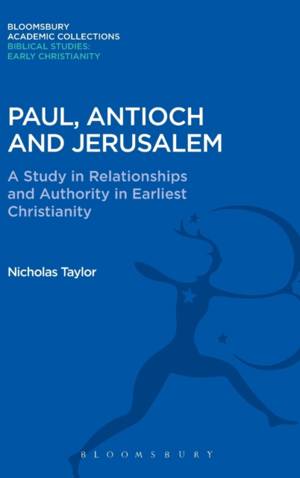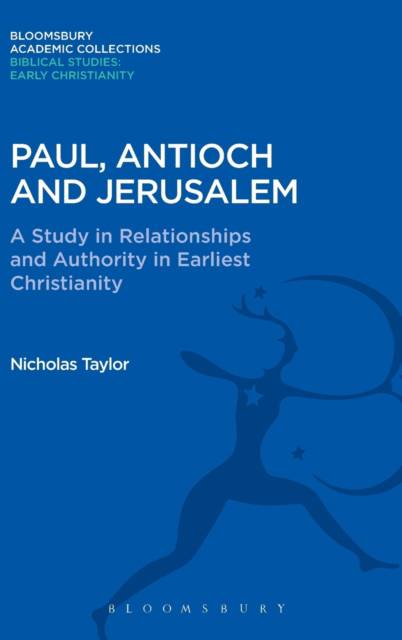
- Afhalen na 1 uur in een winkel met voorraad
- Gratis thuislevering in België vanaf € 30
- Ruim aanbod met 7 miljoen producten
- Afhalen na 1 uur in een winkel met voorraad
- Gratis thuislevering in België vanaf € 30
- Ruim aanbod met 7 miljoen producten
Zoeken
Paul, Antioch and Jerusalem
A Study in Relationships and Authority in Earliest Christianity
Nicholas Taylor
€ 322,45
+ 644 punten
Omschrijving
This investigation into Paul's relationship with the church of Jerusalem draws on the insights of sociology to complement the historical-critical method. Taylor argues that the church of Antioch was, for a significant part of Paul's career, not merely the base of his missionary activities but also the community from which he derived his identity. His relationship with the church of Jerusalem must be understood accordingly. Paul's alienation from the Antiochene church in the aftermath of his confrontation with Peter meant loss of apostolic commission and social identity. Galatians reflects the reconstruction of Paul's personal and apostolic identity to compensate for this loss.
Specificaties
Betrokkenen
- Auteur(s):
- Uitgeverij:
Inhoud
- Aantal bladzijden:
- 288
- Taal:
- Engels
- Reeks:
Eigenschappen
- Productcode (EAN):
- 9781474230544
- Verschijningsdatum:
- 29/01/2015
- Uitvoering:
- Hardcover
- Formaat:
- Genaaid
- Afmetingen:
- 156 mm x 234 mm
- Gewicht:
- 562 g

Alleen bij Standaard Boekhandel
+ 644 punten op je klantenkaart van Standaard Boekhandel
Beoordelingen
We publiceren alleen reviews die voldoen aan de voorwaarden voor reviews. Bekijk onze voorwaarden voor reviews.







